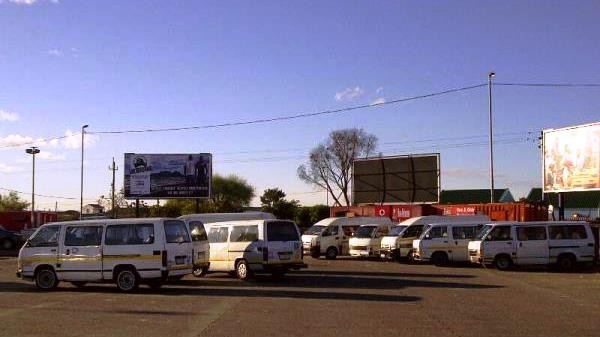Taxi industry shrugs off minimum wage
Department of Labour has set new wage standards but taxi operators say they will continue paying their drivers with commissions and targets
“We do not work according to what the government is putting across,” says Amin Carlsen, chairperson of Wynberg Taxi Forum.
This comes after the Department of Labour on 1 August announced increases in the minimum wages for minibus taxi operators.
“Minibus taxi drivers work on target each day. There is no basic salary,” says Carlsen. “We are not subsidised by government like Golden Arrow buses, so we cannot pay taxi drivers in the manner prescribed by the Department of Labour.”
The department has set the minimum wage at R3,218.57 per month; R742.80 per week and R15.47 per hour for drivers. The new minimum wage for rank marshals is R2,564.33 per month; R591.81 per week and R12.32 per hour.
A minibus taxi driver on the Claremont–Hanover route, speaking on condition of anonymity, said, “I do not know what you are talking about. We do not work on a basic salary. The system is either I work on target or on commission basis everyday. Anything above the target, is what I take home, and what I get on Saturday is my own money. If in the week I fail getting to the target, I have to make it up on Saturday.”
The driver laughed when shown the government salary table.
“Those figures cannot take us through the month. Why does the government worry? We are working our way. Ask any driver around this place,” he said.
The driver would not disclose his average takings after reaching his target.
However, GroundUp spoke to another driver on the Masiphumelele–Fishhoek route. He said he only made R500 a week (well below the new minimum wage) and earned extra by keeping the takings on every second Saturday.
Mokgadi Pela, spokesperson for the department, said, “I have never heard of this system and it sounds [like] it is a way for minibus taxi owners to evade wage increases. The increase is as a result of extensive investigation into vulnerable sectors like the taxi industry. Government has to protect workers in this sector. Every year, there has to be an increase for the workers.”
© 2016 GroundUp. 
This article is licensed under a Creative Commons Attribution-NoDerivatives 4.0 International License.
You may republish this article, so long as you credit the authors and GroundUp, and do not change the text. Please include a link back to the original article.



